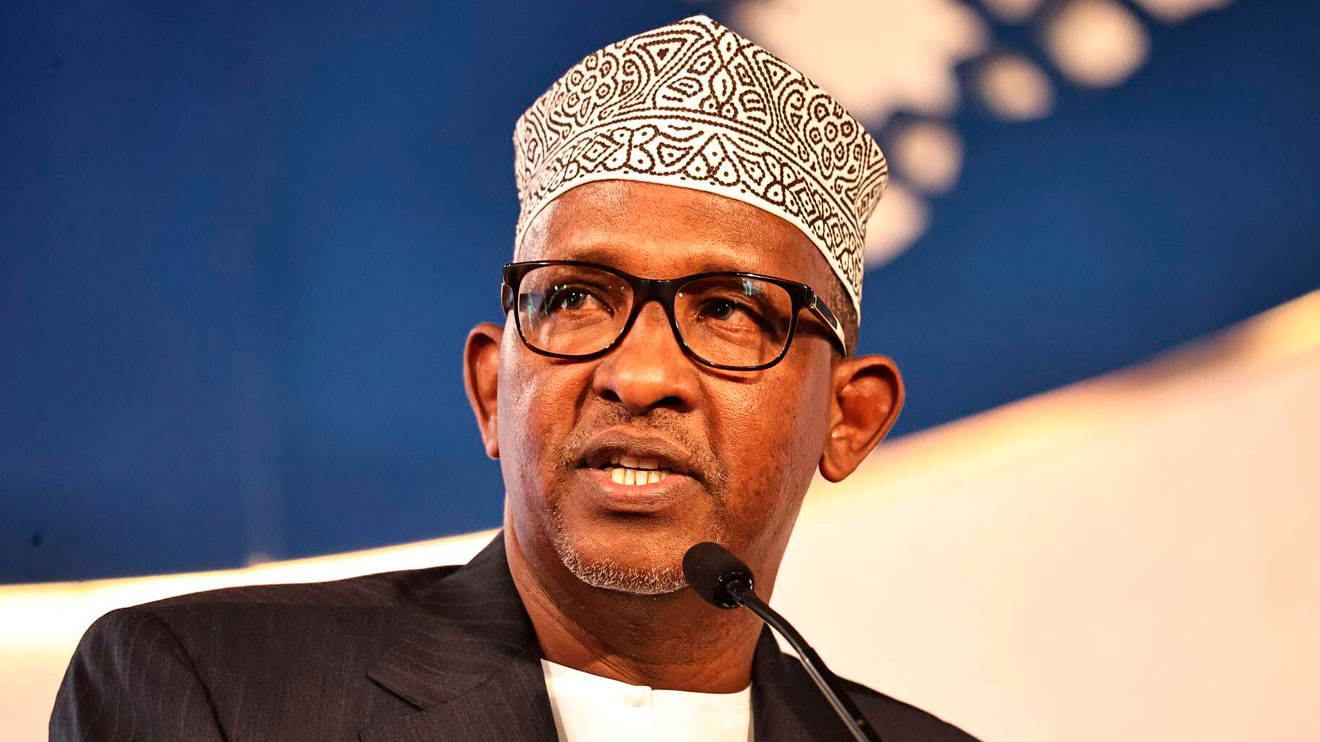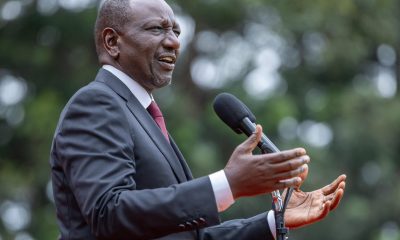Politics
Duale-Tuya Swap: The Dirty Deal Behind Duale’s Move to the Environment Docket

Kenya’s President William Ruto recently made a surprising move by swapping his nominees for the defence and environment ministries.
Aden Duale, initially nominated for the defence ministry, has been reassigned to the environment portfolio.
Meanwhile, Soipan Tuya, previously set to retain her position in the environment ministry, has been nominated for the defence ministry.
This sudden change has raised eyebrows and sparked speculation about the real reasons behind the switch.
The Official Announcement of Duale-Tuya Swap
On Tuesday, President William Ruto communicated to parliament his decision to swap the nominees.
Duale expressed his enthusiasm for the new role on social media, stating, “I look forward to serving in my new portfolio and ensuring focus is on sustainable environmental management, combating climate change, and promoting reforestation and conservation efforts.”
Tuya, on the other hand, thanked the President for her new nomination, promising to give her all in service to the Kenyan people.
A Dirty Deal?
While the official reasons for the swap remain unclear, insiders suggest a more complex and troubling narrative.
Duale, a Muslim male, is seen as an ideal candidate to manage international relations with predominantly Islamic nations.
This is crucial as Kenya has recently conceded millions of hectares of land to a UAE firm for carbon credit generation, a deal that has sparked controversy and concern.
The UAE Connection
Dubai-based firm Blue Carbon has signed a series of deals with African countries, including Kenya, to generate carbon credits.
These credits, supposedly created by restoring and protecting land, are then sold to major polluters to offset their emissions.
Kenya’s State Department of Environment and Climate Change has conceded millions of hectares for this purpose, sparking fears of displacement and exploitation of local communities.
Carbon Credits: A License to Pollute?
Critics argue that carbon credits are a license for wealthy nations to continue polluting while displacing vulnerable communities in developing countries.
Blue Carbon, led by Sheikh Ahmed Dalmook Al Maktoum, a close associate of the UAE royal family, has no prior experience managing carbon offset projects. This raises concerns about the efficacy and ethics of the deals.
Displacement and Human Rights Abuses
The framework of collaboration between Blue Carbon and Kenya could lead to significant displacement of local communities.
Kenyan land laws recognize customary land ownership, but in practice, communities often struggle to obtain legal titles.
The Role of International Pressure
The flurry of carbon credit deals comes ahead of the UN Climate Summit Cop 28, set to take place in Dubai in November.
The global $2 billion voluntary carbon offset market allows carbon emitters to offset their emissions by purchasing credits from projects primarily focused on forest conservation. However, the efficacy of these projects remains highly debated.
Local Impact and Global Implications of Duale-Tuya Swap
The displacement of local communities for carbon offset projects highlights the stark inequalities in global climate policy.
Climate mitigation efforts imposed by wealthier nations often affect communities that contribute the least to climate change the most.
The recent evictions of the Ogiek community from their ancestral lands in the Mau Forest are a poignant example of this injustice.
The Bigger Picture
The swap of Duale and Tuya’s nominations is more than a simple cabinet nominees reshuffle. It is a strategic move that reflects the complex interplay of international relations, environmental policy, and economic interests.
President Ruto’s decision to swap Duale and Tuya in the defence and environment ministries has significant implications for Kenya’s domestic and international policies.
The underlying deals with Blue Carbon and the broader carbon credit market raise critical questions about environmental justice, human rights, and the true cost of climate mitigation efforts.
Kenya Insights allows guest blogging, if you want to be published on Kenya’s most authoritative and accurate blog, have an expose, news TIPS, story angles, human interest stories, drop us an email on [email protected] or via Telegram
-

 Grapevine3 days ago
Grapevine3 days agoAlleged Male Lover Claims His Life Is in Danger, Leaks Screenshots and Private Videos Linking SportPesa CEO Ronald Karauri
-

 Lifestyle6 days ago
Lifestyle6 days agoThe General’s Fall: From Barracks To Bankruptcy As Illness Ravages Karangi’s Memory And Empire
-

 Americas2 weeks ago
Americas2 weeks agoEpstein Files: Bill Clinton and George Bush Accused Of Raping A Boy In A Yacht Of ‘Ritualistic Sacrifice’
-

 Business2 weeks ago
Business2 weeks agoCooking Fuel Firm Koko Collapses After Govt Blocks Sh23bn Carbon Deal
-

 Business2 weeks ago
Business2 weeks agoABSA BANK IN CRISIS: How Internal Rot and Client Betrayals Have Exposed Kenya’s Banking Giant
-

 Investigations1 week ago
Investigations1 week agoEpstein Files: Sultan bin Sulayem Bragged on His Closeness to President Uhuru Then His Firm DP World Controversially Won Port Construction in Kenya, Tanzania
-

 News1 week ago
News1 week agoAUDIT EXPOSES INEQUALITY IN STAREHE SCHOOLS: PARENTS BLED DRY AS FEES HIT Sh300,000 AGAINST Sh67,244 CAP
-

 News2 weeks ago
News2 weeks agoPuzzle Of Mysterious 15 Deaths of Street Children in Nairobi Under A Month and Mass Burials


























